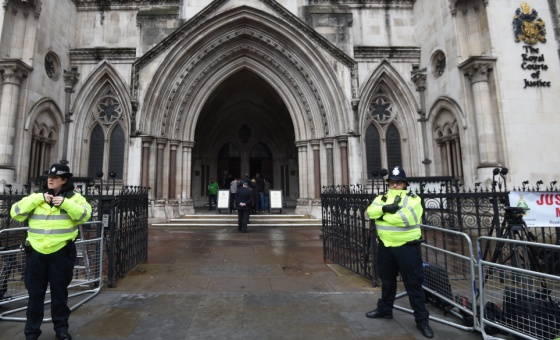This is the last article you can read this month
You can read more article this month
You can read more articles this month
Sorry your limit is up for this month
Reset on:
Please help support the Morning Star by subscribing here
SHOCKING levels of child poverty are forcing schools to pay for pupils’ beds and pillows, education leaders warned yesterday.
Youngsters are losing hope for the future as even working parents are unable to afford “very basic” equipment such as microwaves and cookers.
A National Education Union (NEU) survey published today reveals nine in 10 teachers have seen pupils arriving at school tired due to poverty and four in 10 showing “physical underdevelopment.”
Commenting on the findings, the union’s national leadership council chairman Chris Dutton said: “Lots of school budgets are being spent on things which you would not associate with school budgets — providing basic equipment for families, providing things like cookers, microwaves.
“Families are in poverty, and they can’t afford to pay for these things themslves, so sometimes schools have to step in: microwaves, beds.
“We’ve noticed a huge rise in parents who can’t afford school trips.
“I’m not talking about free school meal (FSM) children — we will subsidise children on FSMs — it’s children who have two working parents.
“Social services or schools are stepping in providing very basic equipment things like duvets and pillows because they are just not there at home.
“Some schools are having to make that very difficult decision and decide what’s right to do, and it shouldn’t be coming from the school budget but we shouldn’t have children living in these circumstances.”
Mr Dutton, a deputy headteacher in a secondary school in south-west England, added: “I think we’ve just become accustomed to it.
“Personally I thought things might have been on the up with this current government but it doesn’t look like there’s much change anymore.
“I don’t think I’m outraged anymore, we’ve gone beyond that because if we don’t do it who will?
“What we can’t have is that child falls even more into poverty by not intervening. It’s not just children is it? It’s all the vulnerable people in society who have no voice for themselves.”
Primary school deputy headteacher Aimee Turner said: “It’s the unseen poverty… that wider curriculum offer is not available for our children.
“So many local schools are having to withdraw a lot of their beautiful after-school clubs that they used to offer, things like the sports and arts clubs.
“Education always used to be the fastest route out of poverty — that change in aspirations for our families and our pupils means they can’t see a route out of poverty.
“Our children are losing their aspiration because they don’t see a value in education.”
Parents are struggling with “extreme NHS waiting lists” for paediatric and neurological services, with schoolgirls suffering from period poverty.
“When I started as a teacher it was very much about working with a child, now it’s with families,” she said.
Michael Allen, deputy headteacher at a Wiltshire primary school, said: “We are working really hard to help with child poverty… we now see that as part of our job as a teacher.
“We have become a safety net. We are happy to be that safety net because otherwise it wouldn’t be there.”
Asked about Labour’s proposed disability benefit cuts, special school headteacher Kari Anson said: “I’m really scared about the potential welfare cuts.
“That will affect a huge amount of young people within the Send [special educational needs] sector — that really worries me beause that mean things potentially can only get worse.”
The NEU survey also revealed that 74 per cent of school support staff saw pupils with poverty-related poor hygiene, in inadequate clothing or shoes (72 per cent) and pupils showing signs of hunger (69 per cent).
NEU general secretary Daniel Kebede said: “Child poverty is a political choice, one that has been sustained by successive governments which have failed to get to grips with the solutions.
“It is profoundly worrying that in one of the richest countries in the world, we continue to expect schools to plug the gap.
“The reality is that child poverty is rising, not falling. Instead of reducing it, the government is making the lives of 4.5 million young people and their parents more difficult.
“Whether it’s the two-child limit or welfare cuts, the end result is the same: more suffering for the most vulnerable in society.”
The Department for Education was contacted for comment.











